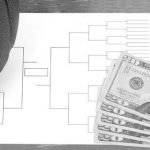An Elementary Example
Oscar (who has a generally sour disposition and loves trash) wants to take advantage of Grover (who is lovable, furry, and naive) to make a quick buck. Oscar knows Grover loves to roller skate and all things related to roller skating. Oscar hatches a scheme to sell some old junky roller skates to Grover. Oscar wants Grover to sign a binding and enforceable contract. Oscar finds one pristine pair of roller skates and shows them to Grover. Oscar says he has a collection of 20 “antique” roller skates in pristine condition and will sell the roller skates to Grover for the low, low price of $100 per pair. Grover thinks this is an incredible deal and, based only upon seeing the one pair of pristine roller skates, agrees to pay Oscar $2,000 for the entire collection. Oscar has his favorite attorney draw up a contract for the transaction and he and Grover sign.
A few days later, one of Oscar’s buddies delivers to Grover 20 pairs of old, broken, rusted, and non-functioning roller skates. Grover realizes he has been duped. Grover refuses to pay Oscar any money. Oscar sues Grover to enforce Grover’s obligation to pay Oscar $2,000 for the roller skates. Grover denies liability and claims Oscar has unclean hands.
The Unclean Hands Doctrine
Section 31-11-05(8) of the North Dakota Century Code states: “A person cannot take advantage of that person’s own wrong.” This is often known as the “unclean hands doctrine.” The unclean hands’ doctrine is often used as a defense to a complaint. This means the person being sued (Grover) has a legal defense against non-payment of a contractual obligation to the person bringing the lawsuit (Oscar) because the person bringing the lawsuit was not honest and forthright when the contract was entered.
In other words, Oscar cannot tell Grover he has 20 pairs of antique roller skates in order to induce Grover to agree to pay Oscar $100 per pair when Oscar knows for a fact he does not have 20 pairs of antique roller skates. Oscar’s “wrong” is that he doesn’t actually have what he promised he would deliver. Oscar cannot sue Grover for nonpayment for the roller skates because Oscar would get to take advantage of his misrepresentation in order to get Grover to agree to pay Oscar $2,000. Oscar has unclean hands.
Because the unclean hands’ doctrine is a defense to a complaint, Grover must prove Oscar had no intention of delivering 20 pairs of antique roller skates. Grover has to show that Oscar acted in bad faith when the contract was entered. Grover would have to call witnesses or present evidence that Oscar never had 20 pairs of antique roller skates or that Oscar intended to enter the contract only to swindle Grover out of his money.
The example used above is a very simple scenario to identify unclean hands in the contract. In large commercial or land transactions, proving the unclean hands’ doctrine may be very complex. There can be many layers to misrepresentations, misstatements, or even fraudulent behavior by the plaintiff that induced the defendant to enter into a contract. Finding out the truth may require interviewing several witnesses, reviewing thousands of pages of documents, and compelling the plaintiff to turn over evidence that could ruin the plaintiff’s case. An experienced lawyer can get through all those layers. After all, Oscar may only be a frontman to a larger scheme run by Slimey.
Contact SW&L
If you need an attorney to help in litigation, contact our Business Law Team at 701-297-2890. Or you can email us via the contact form below and one of our attorneys will try and help.
The information contained in this article and on this website is for informational purposes only and not for the purposes of providing legal advice. You should contact an attorney to obtain advice with respect to any particular issue or problem.










